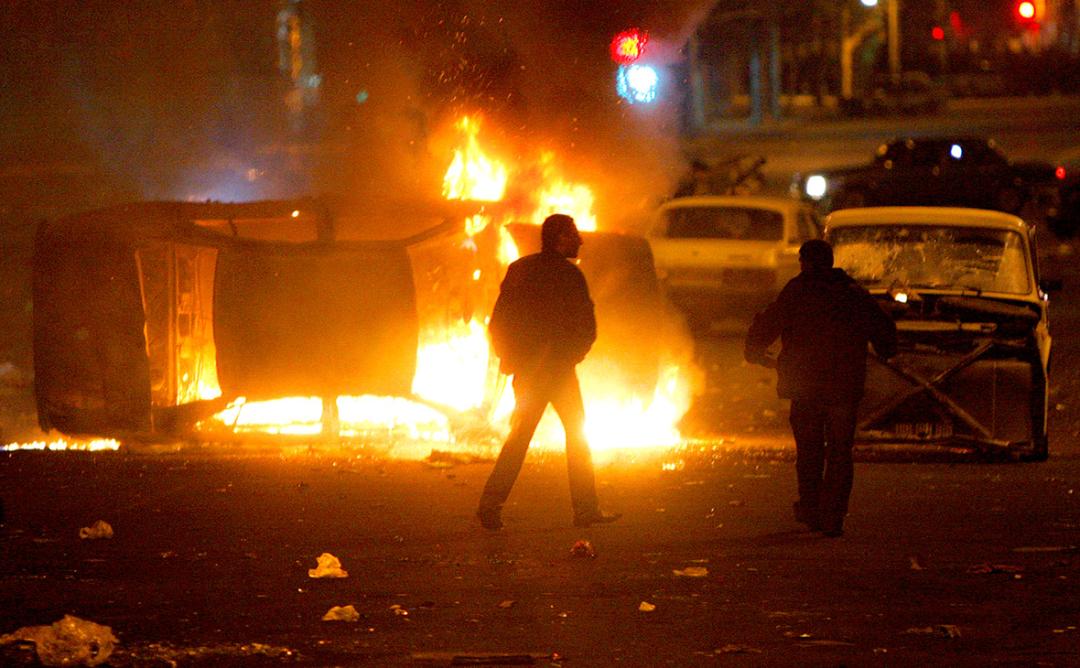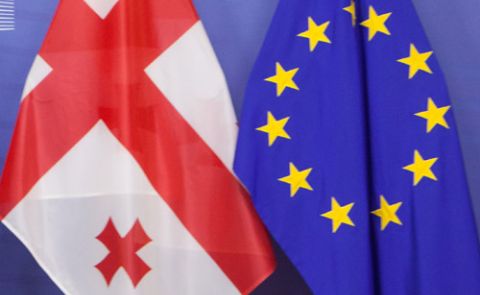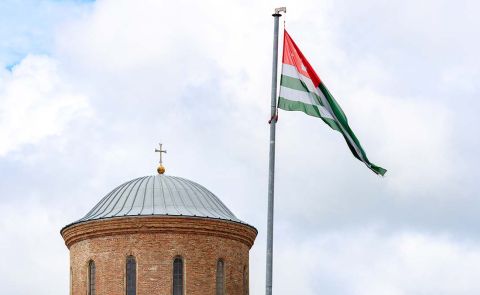
BBC Russian Service leaks Armenian Secret Documents

On 7 August, the Russian branch of the BBC leaked secret information regarding the investigation of the events from 1-2 March 2008 in Armenia.
According to the leak from the Armenian Special Investigations Service, a general of Nagorno-Karabakh’s armed forces Samvel Karapetyan (also known as Oganovsky) led the operation on the suppression of post-election demonstrations in Armenia in 2008. Members of his armed group, which was reportedly visited by former Armenian presidents Robert Kocharyan and Serzh Sarkisyan during those days, had expressed readiness to “shoot at people.” Ten people, including two security officers, were killed as Armenian authorities used force on 1 March 2008 to suppress the opposition demonstrations protesting against the outcome of the disputed presidential election.
According to investigators, Karapetyan formed a special group consisting of twenty of his subordinates, which was housed in the basement of the presidential residence on Marshal Baghramyan Avenue in Yerevan. There, members of the group were visited several times by President Robert Kocharian and Prime Minister Serzh Sarkisyan. All members of the group expressed their readiness to ‘shoot at people’ if there was an order, and it was this group that shot at the protesters on 1 March 2008 according to the investigation.
The document leaked to the BBC also stated that the Armenian businessmen Gagik Tsarukyan (leader of Prosperous Armenia) and Samvel Aleksanyan were also involved in the incident. Tsarukyan’s and Aleksanyan’s representatives visited the military men stationed in the basement of the presidential residence under the command of Karapetyan and handed out money to them, the investigator claimed.
Karpetyan denied any kind of involvement. “I don’t know why the article was published, but it has nothing to do with the reality. I think this is an order from our neighboring countries,” he said. “I didn't even raise a gun at the civil population of [our] enemy countries” he added.
Kocharyan’s legal team also contested the content of the BBC leak. “I insist that in the case presented to us there is not a single piece of testimony in which this circumstance is confirmed. I am telling you, had there been at least one testimony corroborating this circumstance, it would have already been included in the indictment and published in various possible ways,” Kocharyan’s lawyer Hovhannes Khudoyan said at a news conference in Yerevan.
The head of Kocharyan’s office Viktor Soghomonyan stated that the leak has wording issues and thus cannot be regarded as a trustworthy source. “I can’t tell whether or not the article is ordered. But some of the wording, as well as the title, certainly raise numerous questions. As our attorneys have clarified today, we are not dealing with facts but an investigation theory that’s not substantiated by either facts or the investigation. (...) there is a chance that an article with such interpretation wasn’t published by accident. I have to regret that such a prestigious publication such as the BBC has allowed itself several such inaccuracies which put the standing of this article under scrutiny,” he said.
Seda Safarian, who represents the interests of a victim in the ‘1 March’ case, however, told the Armenian Radio Free Europe that there is testimony in the case that confirms the involvement of a military group from Nagorno-Karabakh in the suppression of demonstrations in Yerevan. She also said that what was published by the BBC is not something new. “In organizing this, both presidents (Kocharyan and Sarkisyan) were not sure that Armenia-born Armenians will agree to shoot at Armenia-born Armenians... and both felt only confident when they deployed Karabakh forces in Armenia,” Safarian claimed.
The current Armenian officials were concerned about the fact that secret national documents were leaked by mass media outlets outside of their country. The Secretary of Armenia’s Security Council Armen Grigoryan raised his concerns regarding the leak. “All face this issue, and WikiLeaks is a bright example of it. The documents of one of the biggest powers in the world – the USA – appeared in the hands of mass media outlets. It is very important for us not to have any leaks, as secrecy is important for security as well,” he said.
On 8 August, almost parallel to the document leaking, at the cabinet meeting of the Armenian government, the pecuniary aid to victims of the 2008 violence was approved. Justice Minister Rustam Badasian said that the families of ten people killed in the protests will receive 30 million drams (about $63,000) each, those who were seriously injured will get pecuniary aid amounting to 15 million (about $31,500) and those who incurred harm to their health of medium gravity will be paid 5 million drams (over $10,000) in assistance. Prime Minister Nikol Pashinian said that the approved set of measures in no way implied compensation. “Sorry for the harsh wording, but this does not determine the price of life of an Armenian citizen. This is being formulated as assistance,” he stressed.
See Also


BP Strengthens Presence in Azerbaijan’s Offshore Energy Sector

Netanyahu’s Letter to Aliyev: Mutual Trust, Solidarity Following Hamas Attacks, Facilitating Dialogue Between Israel and Türkiye

Azerbaijan Expands JF-17 Thunder Fighter Jet Order from 16 to 40 Units

EU Commissioner and NATO PA Warn Georgia Over Democratic Decline Amid Accession Challenges

